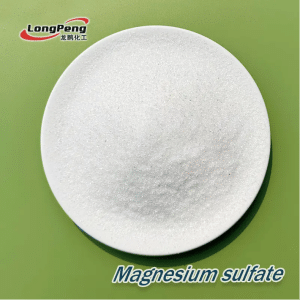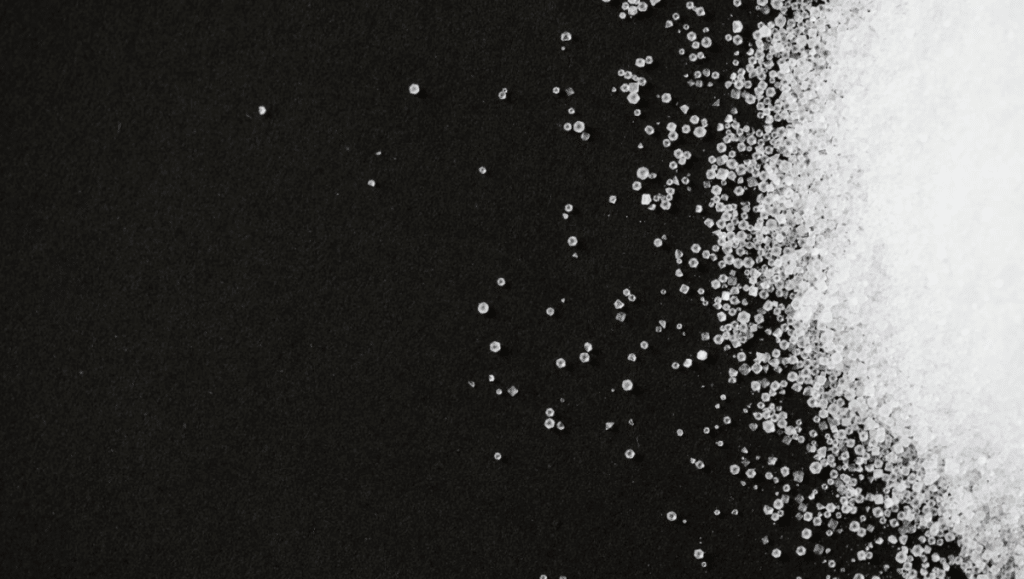Anhydrous magnesium sulfate is a chemical compound with the formula MgSO₄, legendary for its moisture-absorbing properties. This aspect renders it an indispensable desiccant in industries. It is used to dry solvents in organic syntheses so that water-sensitive reactions proceed without interference. Furthermore, its application extends to protecting moisture-sensitive products, e.g., medicine and electronics, during storage and transport. Notably, its high affinity for water and the fact that it can form hydrates make it reliable for preserving a dry environment in these applications.
Characteristics of Anhydrous Magnesium Sulfate
Magnesium sulfate anhydrous exhibits a set of unique characteristics, including:
Chemical Structure
Anhydrous MgSO₄ shows a distinctive orthorhombic crystalline structure, which gives exclusive physical properties.
Hygroscopic Nature
It has a high affinity for water, which enables it to absorb air moisture.
Thermal Stability
Thermally, it remains stable up to 1124°C, beyond which it decomposes without melting.
Solubility Profile
Soluble in water but insoluble in ethanol, anhydrous magnesium sulfate dissolves at 35.1g per 100ml of water at 20°C.
Reactivity
Chemically inert to organic compounds and acidic substances, it doesn’t participate in unwanted side reactions, ideal for use in specific chemical environments.
Anhydrous Magnesium Sulfate over Other Common Desiccants
In the world of desiccants, various types abound. Among them, magnesium sulfate anhydrous can often be a preferred option over other alternatives, thanks to its chemical properties.
Anhydrous Magnesium Sulfate vs. Anhydrous Calcium Chloride
While effective in drying gases and organic liquids, anhydrous calcium chloride is limited in its application range. For instance, it is unsuitable for drying acidic substances, alcohols, and esters due to its potential to react with these compounds. In some cases, it can prompt the formation of unwanted by-products or even hazards. Alternatively, magnesium sulfate anhydrous is more chemically inert, which becomes harmless for drying multiple substances, including those where calcium chloride falls short. For instance, anhydrous magnesium sulfate in organic synthesis would be favored for drying reaction mixtures containing alcohols or acidic components.
Magnesium Sulfate Anhydrous vs. Anhydrous Sodium Sulfate
Anhydrous sodium sulfate is another frequently used desiccant for its non-reactive nature and stability. Nevertheless, its water absorption capacity is lower than anhydrous magnesium sulfate’s. This difference becomes essential in applications requiring efficient water removal for deficient moisture levels. With its higher capacity for water uptake, anhydrous MgSO₄ can accomplish drier conditions in a shorter time for processes where residual moisture is a precarious factor.
Anhydrous Magnesium Sulfate vs. Anhydrous Potassium Carbonate
Due to its fundamental nature, anhydrous potassium carbonate is a strong desiccant but unsuitable for drying acidic substances. When exposed to acids, it can undergo neutralization reactions to compromise its drying efficiency and contaminate the substance being dried. On the other hand, magnesium sulfate anhydrous offers a neutral drying environment. It is advantageous in situations where the chemical integrity of the sample dominates, including in the preservation of acid-sensitive pharmaceutical compounds.
Quality Anhydrous Magnesium Sulfate from Longpeng
While illustrious for years of expertise in magnesium sulfate anhydrous manufacturing, Longpeng is a trustworthy supplier of Epsom salt. Knowingly, Longpeng’s magnesium sulfate anhydrous characterizes incomparable purity. It measures above 98%, with a magnesium oxide content of over 33%, which surpasses typical industry standards.
Moreover, their competitive pricing strategy renders them attractive to bulk purchasers in the pharmaceutical and agricultural sectors for product purity. In addition, Longpeng’s customization capability allows clients to mold orders to industry requirements, so each batch meets the precise needs of applications, from desiccants in the pharmaceutical dominion to fertilizers in agriculture. Henceforth, choosing Longpeng for anhydrous magnesium sulfate assures high-grade product quality while offering flexibility and cost-effectiveness for numerous industrial applications.
Conclusion
Bulk Epsom salt from Longpeng stands out for dedicated industrial applications in organic synthesis and moisture-sensitive product protection. Its unique orthorhombic structure, high water absorption capacity, and thermal stability make it superior to other alternatives in the market, not to mention Longpeng’s product claim of over 98% purity. Visit their website for quality Epsom salt today!

